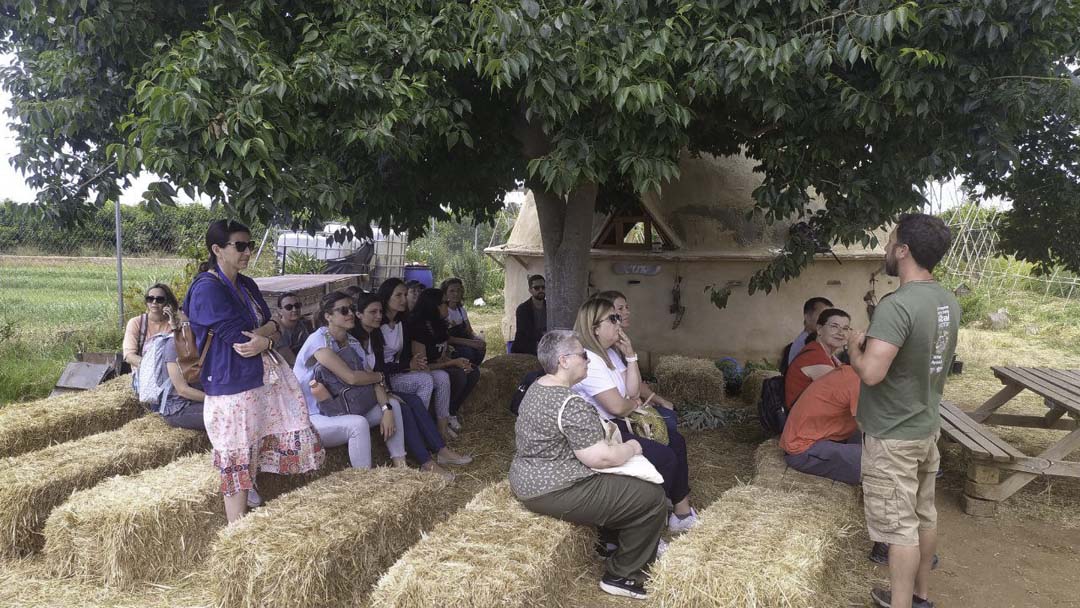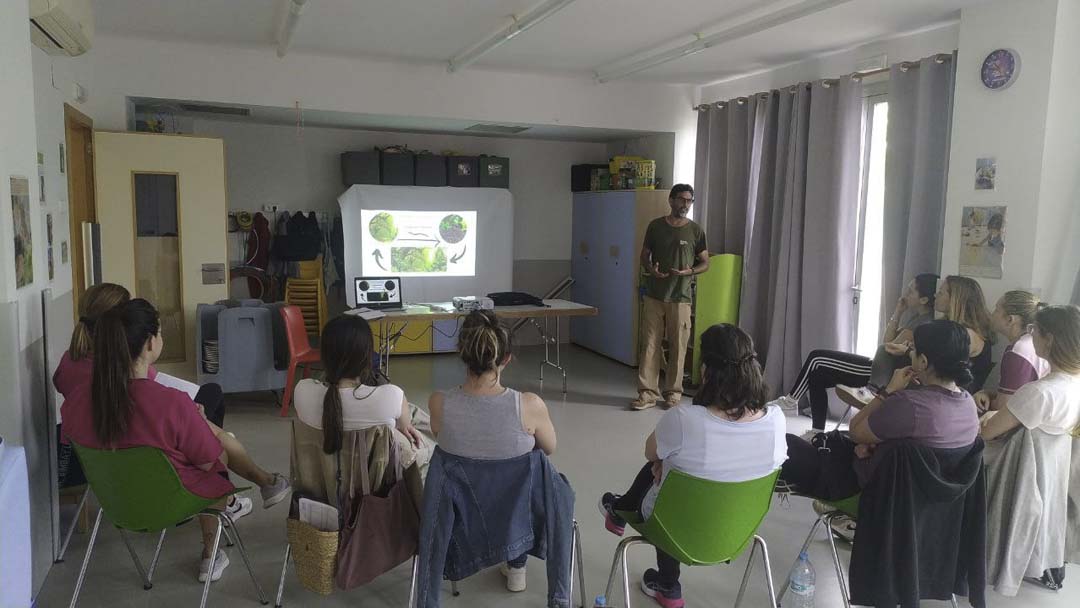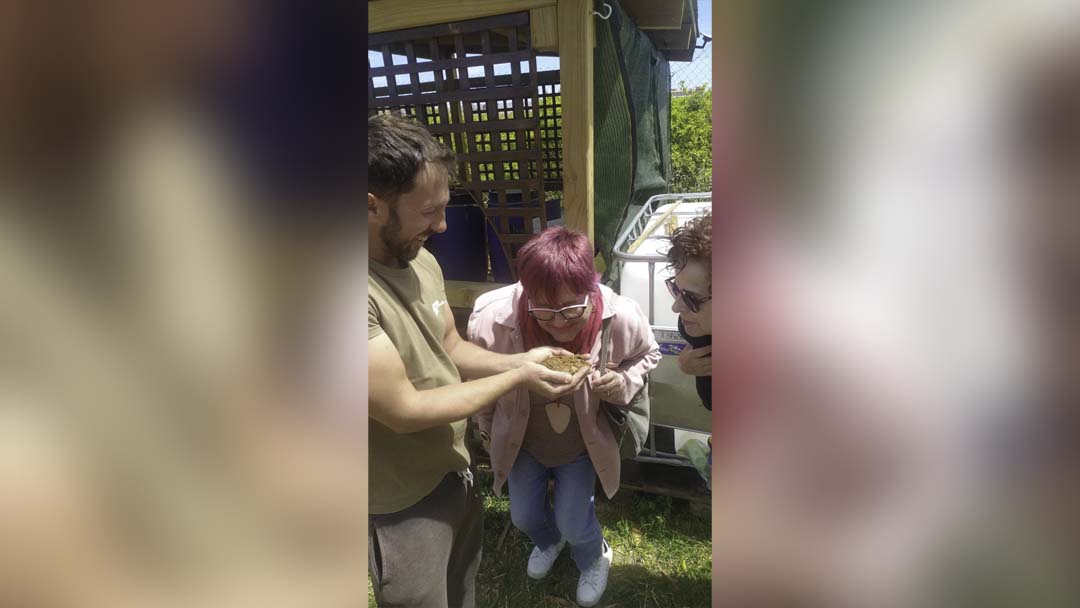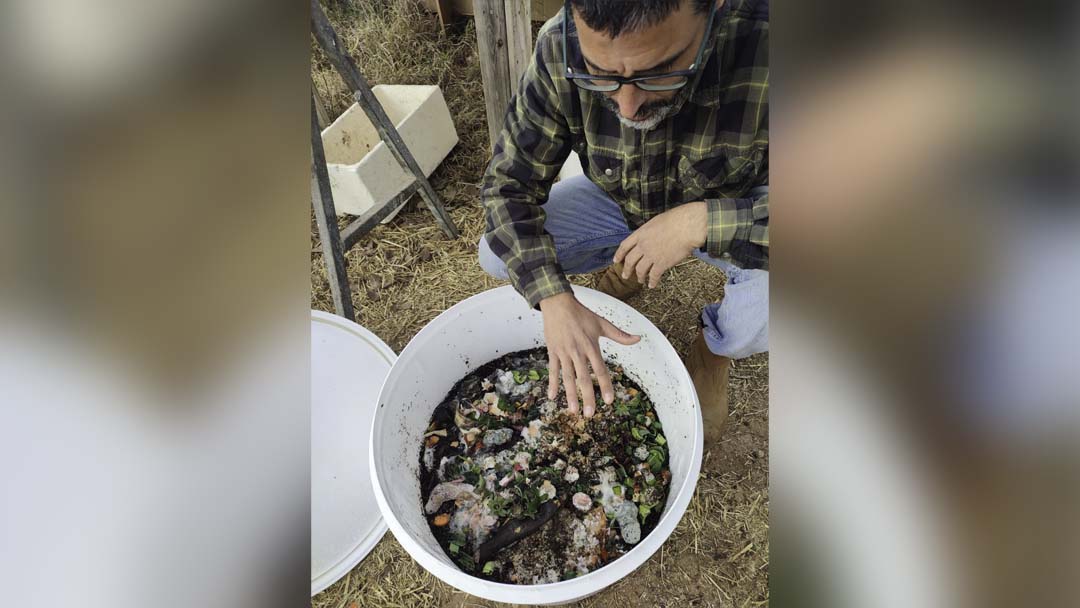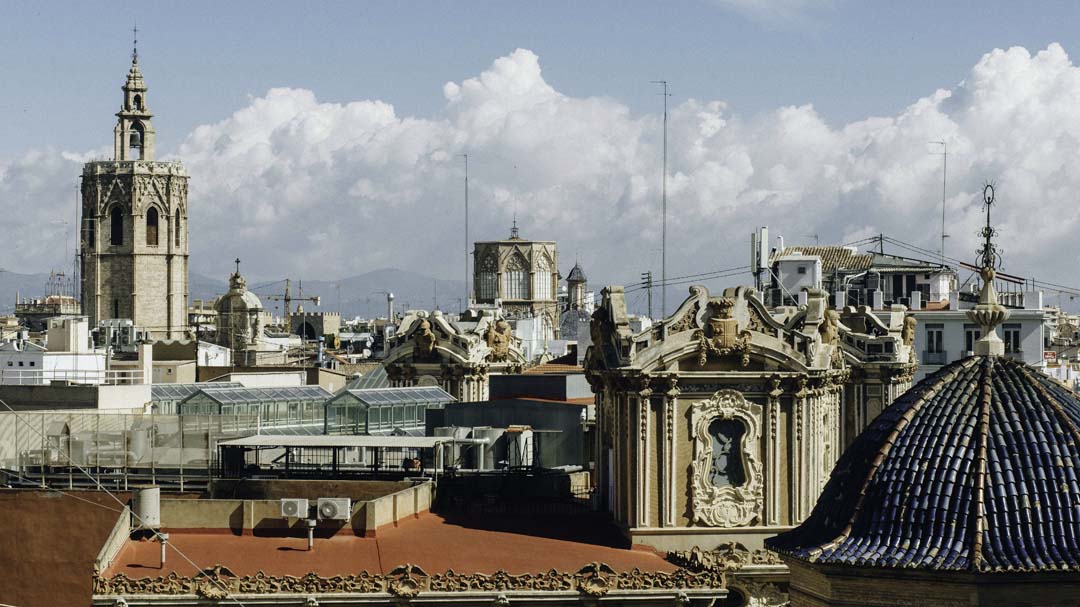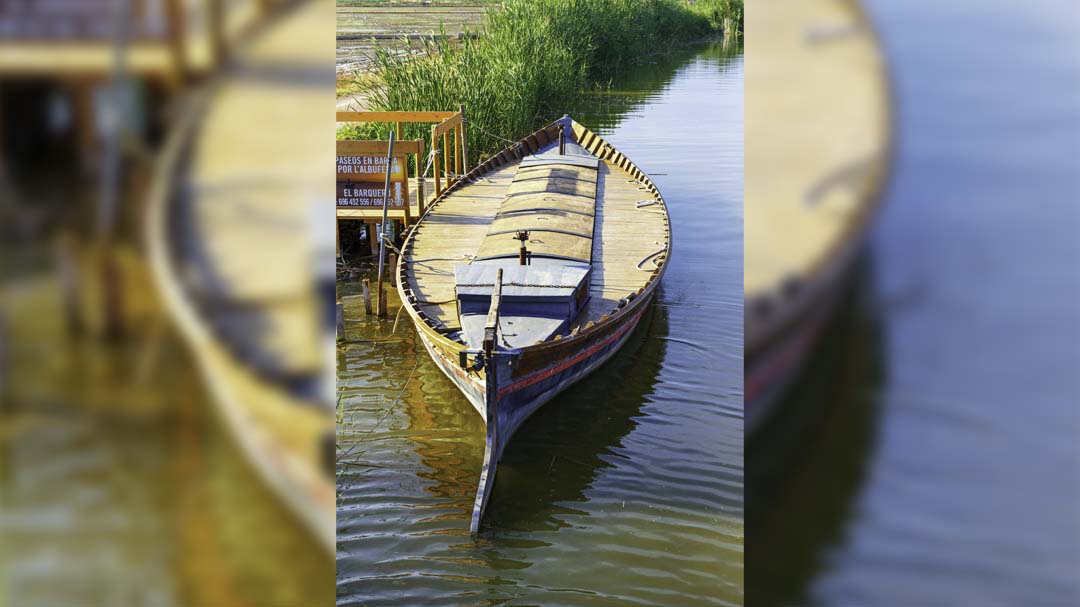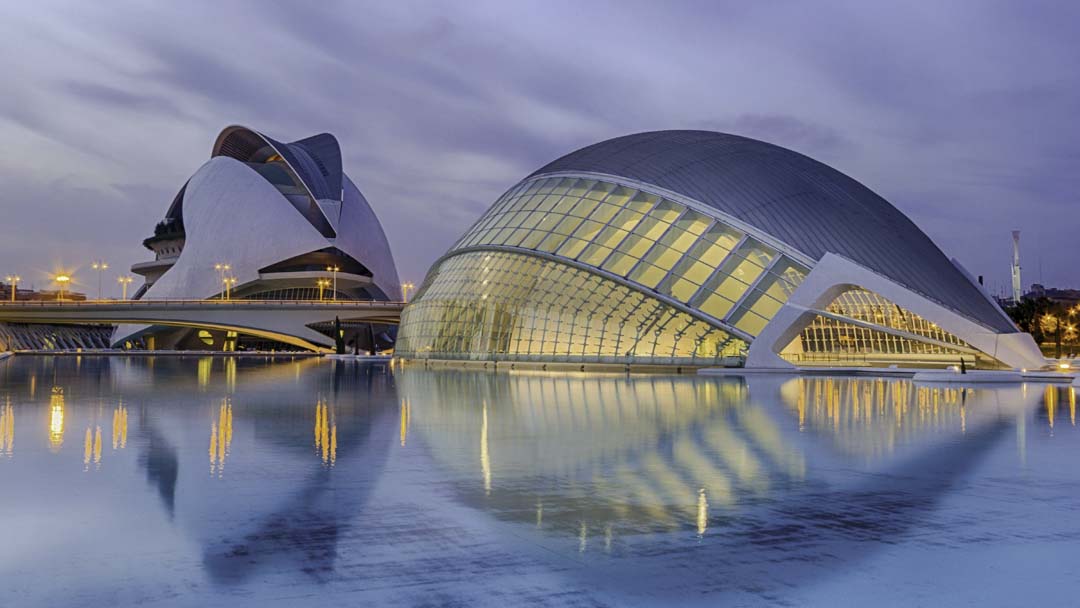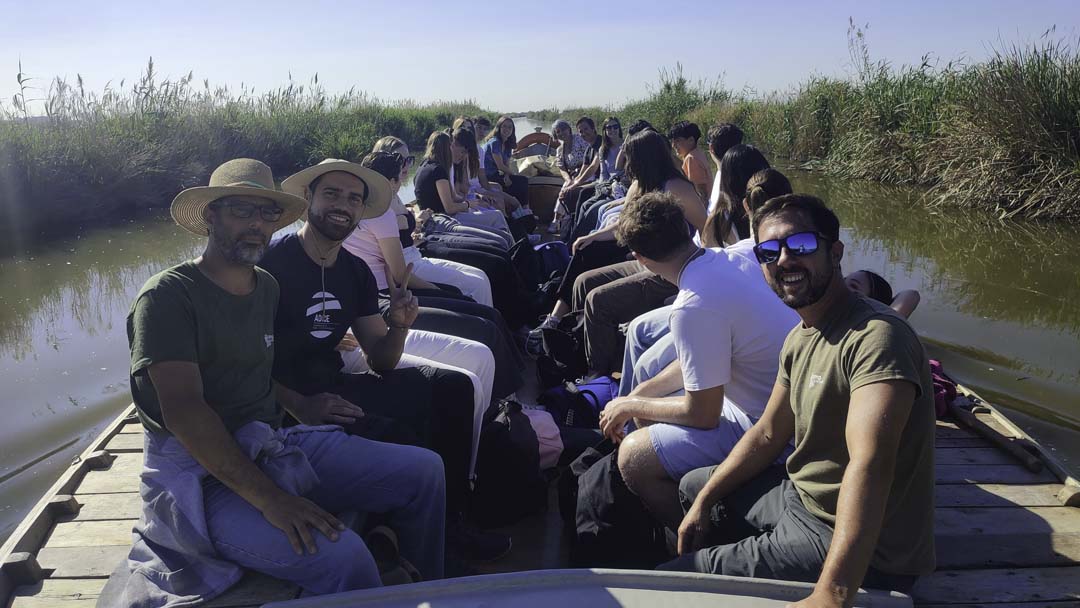
Sowing future: Creating regenerative ecosystems through education
ERASMUS + Teachers Course in Valencia
Join us in Valencia, Spain, to explore our successful agro-environmental educational programs ‘G3‘ and ‘Albal Circular.’ In this course, you’ll learn how to implement and adapt sustainable practices to regenerate the soil through the effective management of the school organic waste. This process creates valuable learning opportunities for students, teachers, and the wider community.
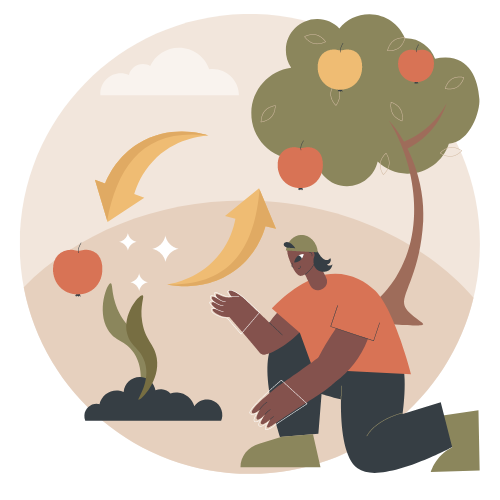
Learning objectives
- To offer a fresh and forward-thinking approach to integrating environmental education across various educational levels, including preschool, primary, secondary, and non-formal education.
- To show educators real examples of how our projects are working in local schools and communities.
- To try out a range of eco-techniques to transfer to schools and educational settings.
- To learn about different ways of organic waste management in schools, educational settings and communities.
- To understand that organic waste is a valuable resource for soil regeneration.
- To explore how to integrate regenerative agriculture concepts into the school curriculum.
- To provide practical experiences, activities, and tools to educators to promote reflection and inspiration among participants.
- To raise ecosystem awareness by demonstrating how composting directly benefits local ecosystems and promotes biodiversity.
- To understand the relationship of natural cycles and processes, such as the organic matter cycle, that occur in our ecosystems, and our interdependence with them.
- To encourage sustainable practices at schools, educational settings and communities. Adopting and promoting practices that minimize negative environmental impacts and support ecosystem health.
- To help educators plan how to create regenerative ecosystems in their schools or educational settings and plan realistic steps for implementation and success.
- To Learn to use soil regeneration projects as a community building, to develop teamwork and a shared sense of purpose among students.
- To have fun and to share successful creative activities they use in their school and country so we can learn from each other.
- To explore how parents and the local community can be involved in their children’s education through regenerative practises and workshop events.
- To create a network of educators, schools and educational settings from all over Europe.
Methodology
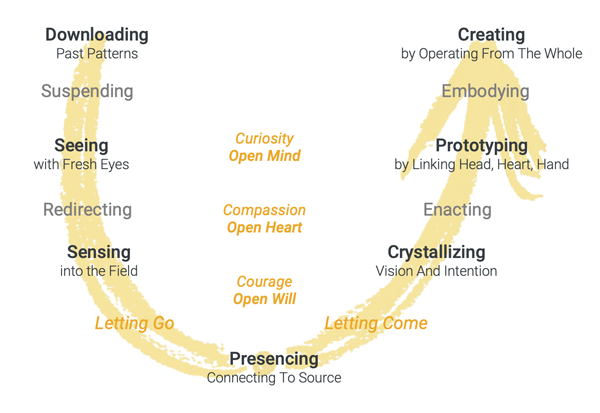
The methodology of the learning course is highly practical and participative focusing on “learning by doing” and the “theory U”. The participants will take part in practical training, cooperative work, different activities and discussions.
We provide a positive, relaxed and supportive learning atmosphere where the exchange of experiences from the participants is part of the learning process. The course will have a balanced structure of indoor time and outdoor.
Our methodology is based on the study and resolution of environmental issues in our local surroundings. The aim is to adjust our actions and habits to improve the environment, while simultaneously developing a deep sense of belonging.
This experience will enable teachers and educators to apply what they have learned in the course, in their classrooms, promoting sustainable practices and fostering a greater commitment to environmental care among their students.
Certification details
The participants will receive the certificates at the end of the course:
- Certificate of attendance.
- Learning agreement complement.
- Support with the Europass mobility document – to be issued by the applicant’s National Agency.
Daily schedule
- Day 1 - Sunday
- Day 2 - Monday
- Day 3 - Tuesday
- Day 4 - Wednesday
- Day 5 - Thursday
- Day 6 - Friday
- Day 7 - Saturday
Course introduction. Introductory meeting, explanation of practical arrangements, presentation of timetable, information about course venue.
Icebreakers.Intercultural games. We get to know each other.
The importance of working on international projects (Erasmus). Our course is a networking opportunity. How to communicate and connect, group values.
Teambuilding exercises. Needs and expectations of the course.
Icebreakers.
Exploring concepts. Sharing experiences and challenges of working in environmental education.
Environmental Education in the Spanish Compulsory Education System with examples.
PM: Guided visit to historic Valencia.
Icebreaking activity.
Visit early years, primary and secondary schools that are implementing the “G3” project of organic waste management. At the schools, you’ll observe their garden space where they teach environmental education and use the compost and other organic resources that produce their food waste to grow their vegetables and plants. These visits will help you gain valuable insights into the project’s impact and effectiveness and how you can put it into practice on your site.
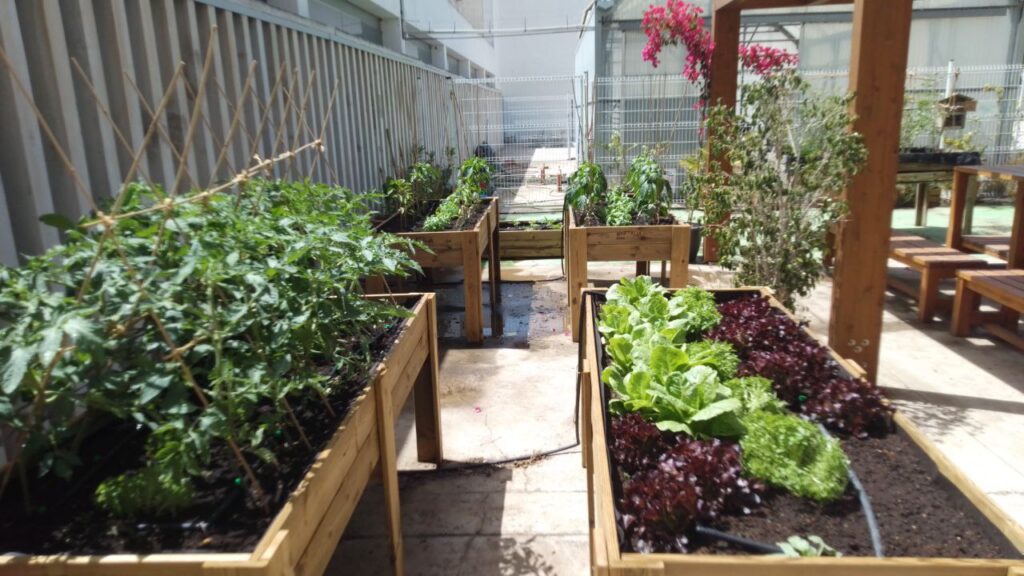
PM: Free time.
Icebreaking activity.
Visit to the natural park of the “Albufera”. This is a protected natural space near Valencia where we find “La Albufera” the largest lake in Spain.
Boat ride and walk into the surrounding wetlands and coastal strip that are part of the park.
Traditional Valencian Lunch.
PM: free time.
Icebreaking activity.
Visit “Tabacalera” a Community composting site where “Albal Circular” project takes shape.
Visit “La Chandra” a regenerative agriculture orchard and a vegetable garden where organic waste is divided into different resources to be transformed into green energy, compost and other organic soil feeders.
PM: Guided visit to modern Valencia (City of Arts and Sciences).
Time to work on the course activity before the presentation.
Visit ‘La Huerta de Valencia’ this landscape surrounding the city is a system of different irrigated vegetable gardens, the biggest and oldest of 6 that still exist in Europe. The institution that regulates irrigation, the Tribunal de las Aguas, has been declared intangible mankind heritage.
Taste fresh ‘orxata’ (tigernut drink) with ‘fartons’ ( pastry) in one of the most typical ‘horchaterias’.
PM: Free time.
Intercultural Dinner.
Presentation of course activity.
Course wrap-up and final evaluation. Review of learning outcomes and course expectations.
Certification ceremony.
Course participants
This course offers learning opportunities for professionals of non-formal education and also for teachers and school staff across the education sector including Preschool, Primary, Secondary, Adult education, Special Needs, Teaching assistants, School management, Vocational education, Higher education, and Student teachers.
Participants well-being
Our top priority during your stay in Valencia is your well-being. We value every person and strive to make you feel appreciated and comfortable throughout your time with us. Please let us know any requirements you may have in advance so we can do our best to accommodate you.
In addition to the included course activities, we put effort into ensuring you have an enjoyable experience by arranging guided tours to the best parts of Valencia. We also prioritize your experience as an intercultural group, organizing team-building and social activities from day one. Our dynamic course is filled with fun and provides opportunities to reconnect with nature.
Accomodation
The course is located in Albal, just 8 kilometres from Valencia, accessible by a 20-minute train ride. In Albal, you can explore options on Airbnb or consider staying at the ‘Casa Quiquet’ or ‘Benetusser’ hotels. Alternatively, if you prefer to stay in Valencia itself, there are plenty of accommodation choices available. Additionally, we’ll provide you with a public transport pass for your convenience.
As a part of the course we also provide…
- Morning refreshments
- Public Transport pass
- Guided trip to Historic Valencia, Modern Valencia (City of Science),’La Albufer’” and boat trip, ‘El Saler’, the traditional agro-environment and architecture of ‘L’horta de Valencia’.
- A traditional Valencian lunch (Paella) and a brunch (‘orxata’ and ‘fartons’).
- Course material.
- Certificate of attendance.
Dates and price
Upcomming sessions
The next session will take place from Sunday 20 to Saturday 26 October 2024.
Upcoming scheduled sessions:
- 26th Jaunuary – 1st February
- 2nd – 8th March
- 1st – 7th June
Course price
80€ per participant for 7 days plus 60€ for activities, gives a total of 620€.
Registration form
Privacy Policy & Legal Notice
Cookies Policy
Enrolment Policy

